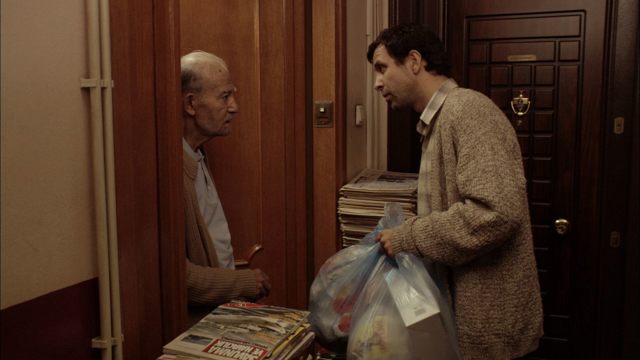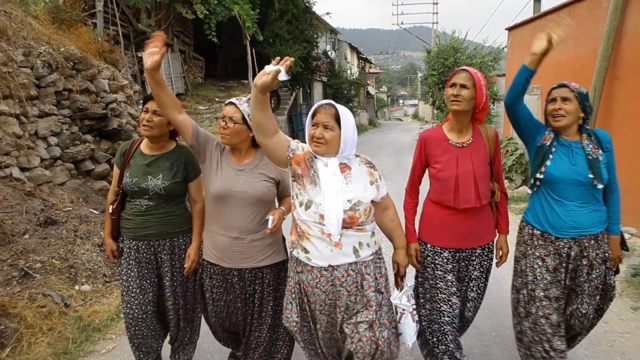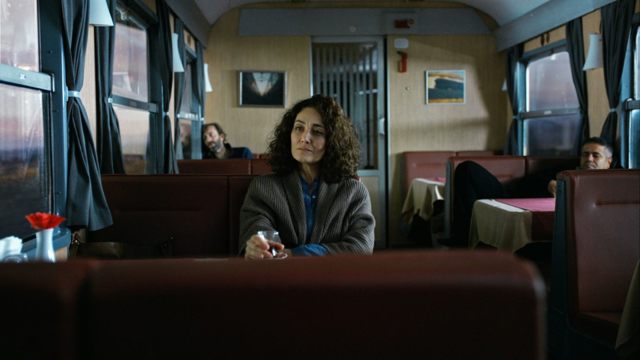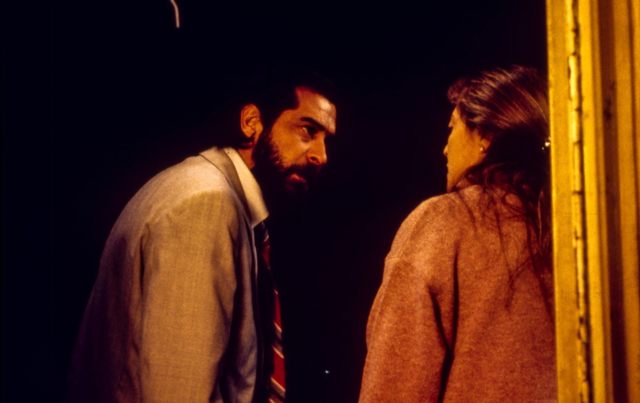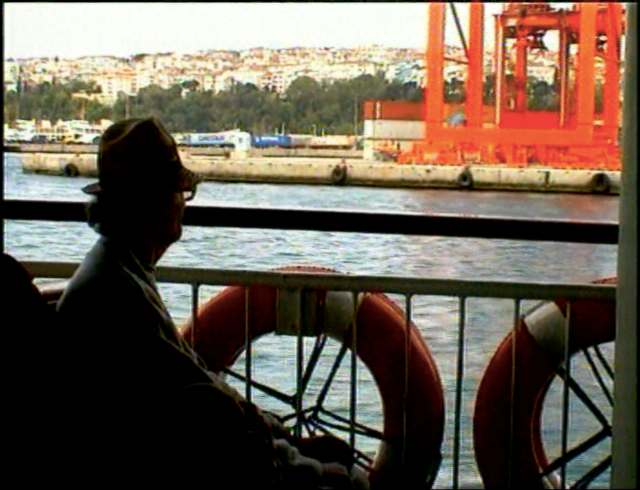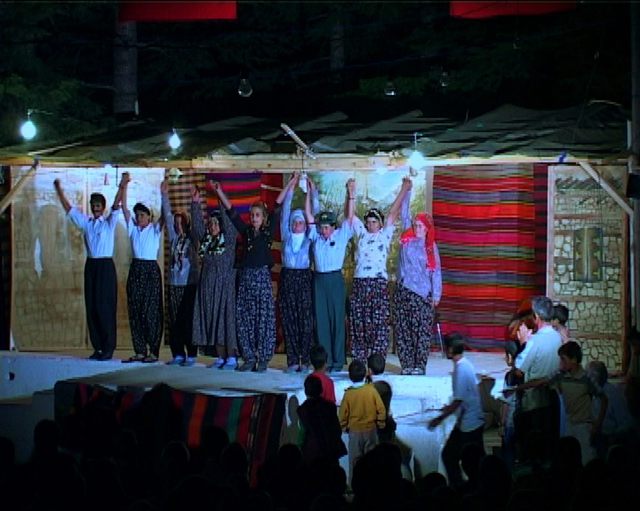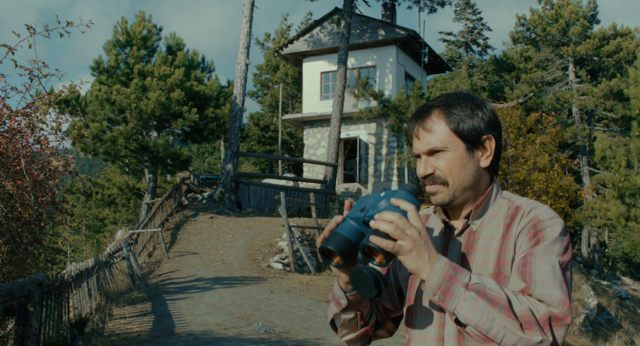- Closed Today
- Ticket
- Shop
- Membership
- TR EN
Rendezvous with Directors 7: Pelin Esmer February 6–16, 2020
Istanbul Modern Cinema is celebrating the seventh year of its series “Rendezvous with Directors” which features directors who stand out for their artistic identity and original approach on the map of contemporary cinema in Turkey. Pelin Esmer is the guest for this year’s program, which focuses on auteur cinema and centers on the dynamics of present-day cinema and directors’ productions from their own standpoint.
Pelin Esmer had her first experience in film production while studying sociology at Boğaziçi University when she worked as a camera, sound, and production assistant for American filmmaker Jeanne Finley’s Conversations Across the Bosphorus (1995), a documentary made by a two-person crew. After graduating from university, Pelin Esmer attended Yavuz Özkan’s Z1 Film Workshop. Her first time on a feature film set was a behind-the-scenes job in Özkan’s The Anatomy of a Man. After completing the workshop, she worked for some time as an assistant to documentary filmmaker Enis Rıza, and later as assistant director in Ziya Öztan’s film The Republic (Cumhuriyet, 1998). She continued to work as assistant director until she produced, directed, and did the camerawork for her first film The Collector (Koleksiyoncu, 2002), a 46-minute-long documentary in which she follows her real-life uncle, Mithat Esmer, who collected all kinds of items. Seven years later, this personal story evolved into 10 To 11 (11’e 10 Kala, 2009), a fiction film in which this same collector (Mithat Esmer) crosses paths with the concierge of the building where he lives (Nejat İşler). She started writing the script during her residency at the Cannes Film Festival’s Cinéfondation where she was invited in 2007. The film had its international premiere at the San Sebastian Film Festival.
Pelin Esmer’s first feature-length film was a documentary titled The Play (Oyun, 2006) which follows the creation and staging of a theater play called The Outcry of Women! (Kadının Feryadı!), written and performed by nine women who live in a village in the Taurus Mountains and spend their days working in the fields, on construction sites, or at home. 13 years later, the director met up with these women again and filmed Queen Lear (Kraliçe Lear, 2019), which is in a sense a sequel to The Play. The second feature-length film in Pelin Esmer’s career as a director who zigzags between documentary and fiction is Watchtower (Gözetleme Kulesi, 2012), a story about conscience told once again through the encounter between two different characters. After having its international premieres in Toronto and Rotterdam, the film won five awards including the award for “Best Director” at the Adana Golden Boll Film Festival. This was followed by Something Useful (İşe Yarar Bir Şey, 2017), a film she co-scripted with author Barış Bıçakçı about literature and death, set during a train journey where two women cross paths. “It is in the ‘in-between’ness of fiction and documentary that I feel I would like to stand” says Pelin Esmer whose cinema creatively uses that ambiguous space between documentary and fiction. Through her larger-than life characters, cinema’s relationship with reality is put to the test anew in each film. The director’s 20-year career in cinema can be described as a journey paved with unrepeatable documentaries and meandering through different fictions. A journey that calls into question the usefulness not only of art but also of life, and is concerned as much with the encounters between its characters as the characters themselves.
Besides the six productions in Esmer’s filmography, the program also features special screenings of some of the milestones in her career, including the short film Snow (Kar, 2000) which was her first film, as well as Anatomy of a Man (Bir Erkeğin Anatomisi, 1997) directed by Yavuz Özkan whose crew she worked for after attending the Z1 Film Workshop.
SHORT FILM
SNOW (KAR), 2002
Pelin Esmer’s very first film is a kind of short video clip. Inspired by the snow outside which was falling nonstop, Esmer used a Hi8 camera to capture images reflecting what the music of Arvo Pärt evoked in her. Esmer’s impressions about that day are as follows: “What I remember most clearly from that day is the darkness inside me that persisted as if to spite the blinding whiteness outside, and also certain images that kept appearing and disappearing behind the falling snow.”
IN CONVERSATION WITH PELİN ESMER
Thursday, February 13, 19.00
Moderator: Müge Turan, Film critic
The conversation held within the scope of the program focuses on Pelin Esmer’s cinema and her direction.
10 TO 11 (11’E 10 KALA), 2009
Turkey, France, Germany | HDD, Color, 110’ | Turkish
Director: Pelin Esmer
Cast: Nejat İşler, Mithat Esmer, Tayanç Ayaydın, Laçin Ceylan
QUEEN LEAR (KRALİÇE LEAR), 2019
Turkey | DCP, Color, 84' | Turkish
Director: Pelin Esmer
SOMETHING USEFUL (İŞE YARAR BİR ŞEY), 2017
Turkey, France, The Netherlands, Germany | DCP, Color, 104' | Turkish
Director: Pelin Esmer
Cast: Başak Köklükaya, Öykü Karayel, Yiğit Özşener
THE ANATOMY OF A MAN (BİR ERKEĞİN ANATOMİSİ), 1997
Turkey | HDD, Color, 99' | Turkish
Director: Yavuz Özkan
Cast: Uğur Polat, Ayda Aksel, Deniz Uğur
THE COLLECTOR (KOLEKSİYONCU), 2002
Turkey | HDD, Color, 46| Turkish
Director: Pelin Esmer
Cast: Mithat Esmer
THE PLAY (OYUN), 2005
Turkey | HDD, Color, 70' | Turkish
Director: Pelin Esmer
WATCHTOWER (GÖZETLEME KULESİ), 2012
Turkey, France, Germany | DCP, Color, 96’ | Turkish
Director: Pelin Esmer
Cast: Olgun Şimşek, Nilay Erdönmez, Menderes Samancılar, Laçin Ceylan, Kadir Çermik, Rıza Akın
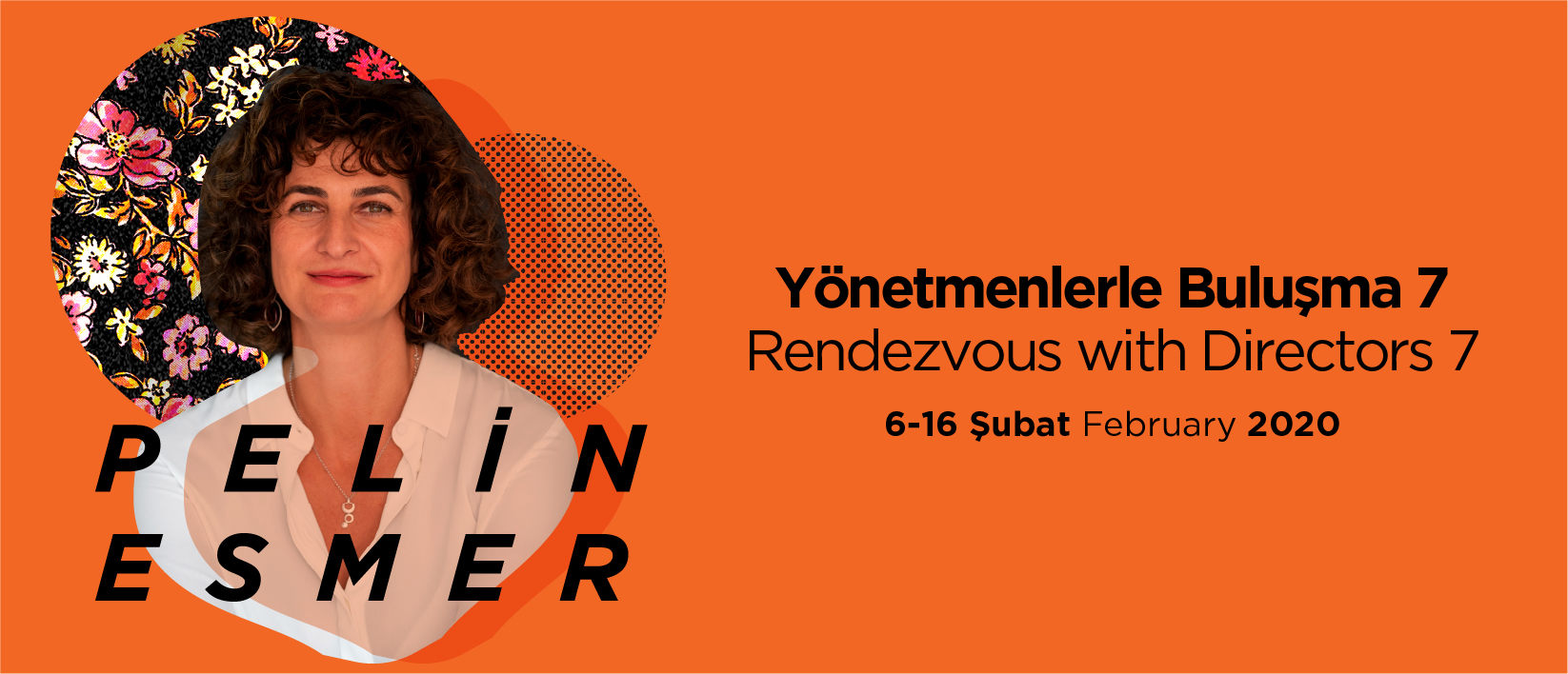
(2).png)
